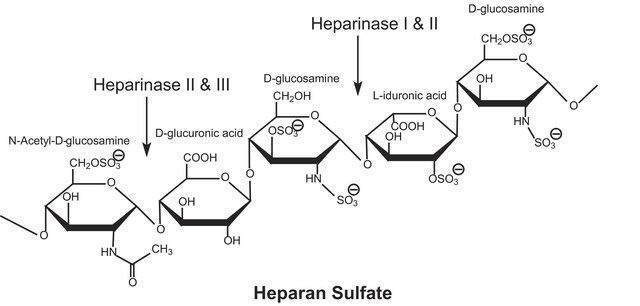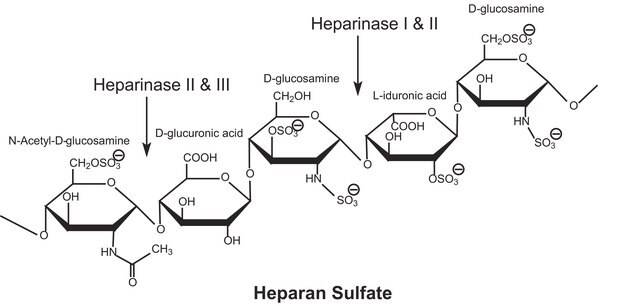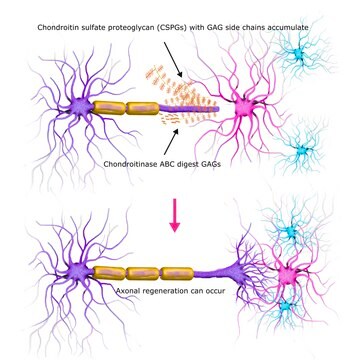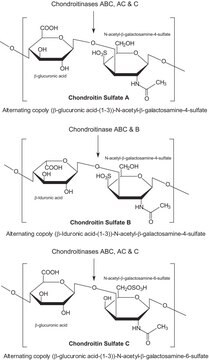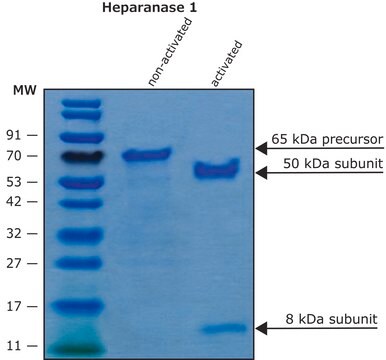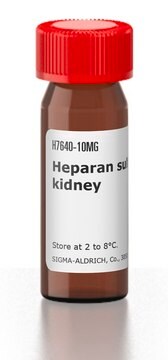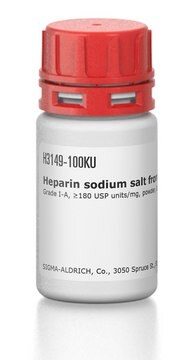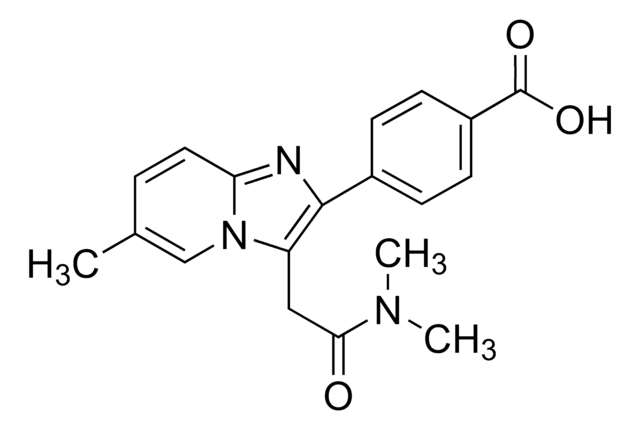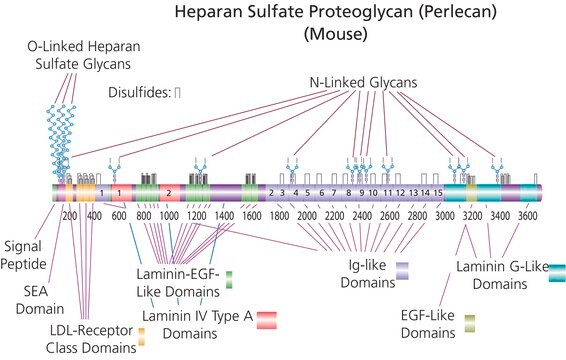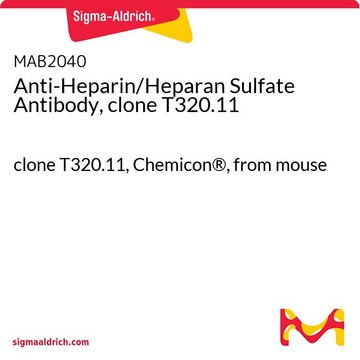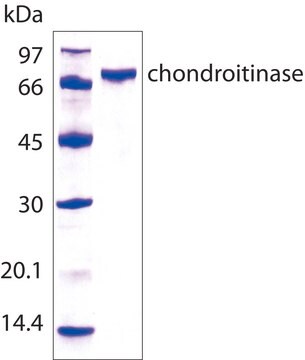H2519
Heparinase I from Flavobacterium heparinum
Lyophilized powder stabilized with approx. 25% bovine serum albumin, ≥200 units/mg protein (enzyme + BSA)
Synonym(s):
Heparin lyase I, Heparinase
About This Item
Recommended Products
conjugate
conjugate (Glucosaminoglycan)
Quality Level
form
lyophilized solid
specific activity
≥200 units/mg protein (enzyme + BSA)
mol wt
42.8 kDa
application(s)
diagnostic assay manufacturing
storage temp.
−20°C
Looking for similar products? Visit Product Comparison Guide
Application
- in the digestion of plasma samples
- to study the effect of medium, washing and sonication on the infectivity of Chlamydia pneumonia
- in enzymatic removal of heparan sulfate from the surface of human rhabdomyosarcoma cells
Biochem/physiol Actions
Unit Definition
Other Notes
Signal Word
Danger
Hazard Statements
Precautionary Statements
Hazard Classifications
Resp. Sens. 1
Storage Class Code
11 - Combustible Solids
WGK
WGK 3
Flash Point(F)
Not applicable
Flash Point(C)
Not applicable
Personal Protective Equipment
Regulatory Listings
Regulatory Listings are mainly provided for chemical products. Only limited information can be provided here for non-chemical products. No entry means none of the components are listed. It is the user’s obligation to ensure the safe and legal use of the product.
JAN Code
H2519-250UN:
H2519PROC:
H2519-50UN-PW:
H2519-BULK:
H2519-100UN-PW:
H2519-VAR:
H2519-100UN:
H2519-PH:
H2519-250UN-PW:
H2519-50UN:
Certificates of Analysis (COA)
Search for Certificates of Analysis (COA) by entering the products Lot/Batch Number. Lot and Batch Numbers can be found on a product’s label following the words ‘Lot’ or ‘Batch’.
Already Own This Product?
Find documentation for the products that you have recently purchased in the Document Library.
Customers Also Viewed
Articles
A key resource feature at our Enzyme Explorer section of biochemicals is "Enzymes for Carbohydrate Analysis and Digestion." Offering kits, reagents, analysis, lists of enzymes related to PTM and carbohydrate metabolism.
Glycosaminoglycans are large linear polysaccharides constructed of repeating disaccharide units.
Our team of scientists has experience in all areas of research including Life Science, Material Science, Chemical Synthesis, Chromatography, Analytical and many others.
Contact Technical Service